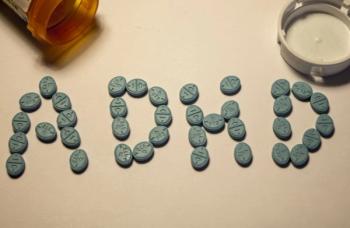
A new study examined whether nonpharmacologic interventions for ADHD could support new guidance for their use.

A new study examined whether nonpharmacologic interventions for ADHD could support new guidance for their use.

For Contemporary Pediatrics, Dr Bobby Lazzara discusses a prospective population-based cohort study published in JAMA Pediatrics that examines whether a link exists between early preterm birth and the development of attention-deficit/hyperactivity disorder (ADHD).

A new study reveals that folic acid supplementation in mothers treated for epilepsy during pregnancy had children who were more likely to display autistic traits.

This month I offer some observations on developmental disorders-ADHD and autism.

Dr. Bass’ recent article in Contemporary Pediatrics, “Personalized medicine, right drug, right patient, right time,” provides a miniature but profound view of what may be the future of pediatric healthcare: focusing on healthcare that is truly individualized through precision science in the areas of diagnosis and treatment, rather than generalized, population-based treatment guidelines.

The premise is to use a patient’s own genetic information to guide decisions for prevention, diagnosis, and treatment of disease and other health conditions.

Despite recommendations from federal overseers that universal autism screening has little benefit, experts in autism remain steadfast in their belief that early screening and intervention improves outcomes.

Diagnosis of attention-deficit/hyperactivity disorder (ADHD) at age 9 years is associated with adverse childhood experiences (ACEs), according to an analysis of data for 1572 children who are part of the Fragile Families and Child Wellbeing Study (FFCWS) birth cohort.

Like typical children, children with intellectual disabilities or autism will toilet train at different rates and with different strategies. For some families, this can be a frustrating and depressing time. Discussing the use of positive rewards and avoiding punishment will help these parents slowly make progress. Here is a detailed program to help patients achieve continence.

Incontinence can be a common problem for children with significant developmental disabilities, impacting where they can go and who needs to go with them; leaving them at risk for neglect or abuse; leading to infections and poor skin health; even affecting vocational plans or future housing. Yet toilet training is still possible for these children.

A follow-up trial conducted 6 years after the conclusion of a randomized controlled trial of early intervention in autism spectrum disorder demonstrated that the intervention had a long-term effect on autism symptoms and continued effects on parent and child social interaction.

A longitudinal study examined the relationship between prenatal or postnatal high-fat, high-sugar diet and symptoms of attention-deficit/hyperactivity disorder (ADHD) in children who demonstrated either early-onset persistent conduct disorder or minimal conduct problems.

One in 68 children has an autism-spectrum disorder (ASD). When screening children, however, physicians must be aware that many other developmental disorders occur more commonly.

New research examines the effects of behavioral, psychostimulant, and combined treatments on homework issues among children with attention-deficit/hyperactivity disorder (ADHD).

Treating allergic rhinitis (AR) in children with attention-deficit/hyperactivity disorder (ADHD) appears to significantly improve not only AR, but also ADHD symptoms.

Despite concerns about ADHD stimulant therapy as a gateway for future drug abuse, a new study shows that teens treated with stimulants later and for shorter durations, and those treated with non-stimulant medications, have higher rates of later drug abuse than their peers who have used stimulant therapy longer.

The amount of off-label uses of atypical antipsychotic drugs (AAPs) prescribed for children with attention-deficit/hyperactivity disorder (ADHD) raises questions about the appropriateness of AAPs for this indication.

For Contemporary Pediatrics, Dr Bobby Lazzara explains key findings from a study published in the Journal of Attention Disorders. The study looked at whether there was a correlation between ADHD and frustration tolerance in children.

Children with ADHD are more likely than their peers to consume less water, exercise less, and spend more time staring at screens-all behaviors that may be negatively affecting their ADHD symptoms, according to a new report.

Two recent studies fail to demonstrate conclusively whether the testing effect can benefit students with ADHD, but both acknowledge the need for more research about teaching strategies for learners with ADHD.

Almost 40% of children and adolescents taking ADHD medications were found to be suffering from bone loss, according to a new report, but researchers are cautioning against changing clinical practices based on these early findings.

Children with autism spectrum disorder are already twice as likely to face premature mortality, but a new study has found that comorbidities double that risk. Find out what you can do to counsel parents on health and safety measures.

What has traditionally been a condition most prevalent among school-aged, white males is increasing among all demographic groups, including females, according to a new report.

Children that lost their ASD diagnoses are often misdiagnosed early on or have their diagnosis changed as they develop, leading researchers to question the way in which ASD is diagnosed and treated.

A federal panel is asking for more research to support regular autism screening, stating in new draft guidance that there is not enough evidence that early, routine screenings recommended by the American Academy of Pediatrics and many others are worthwhile.